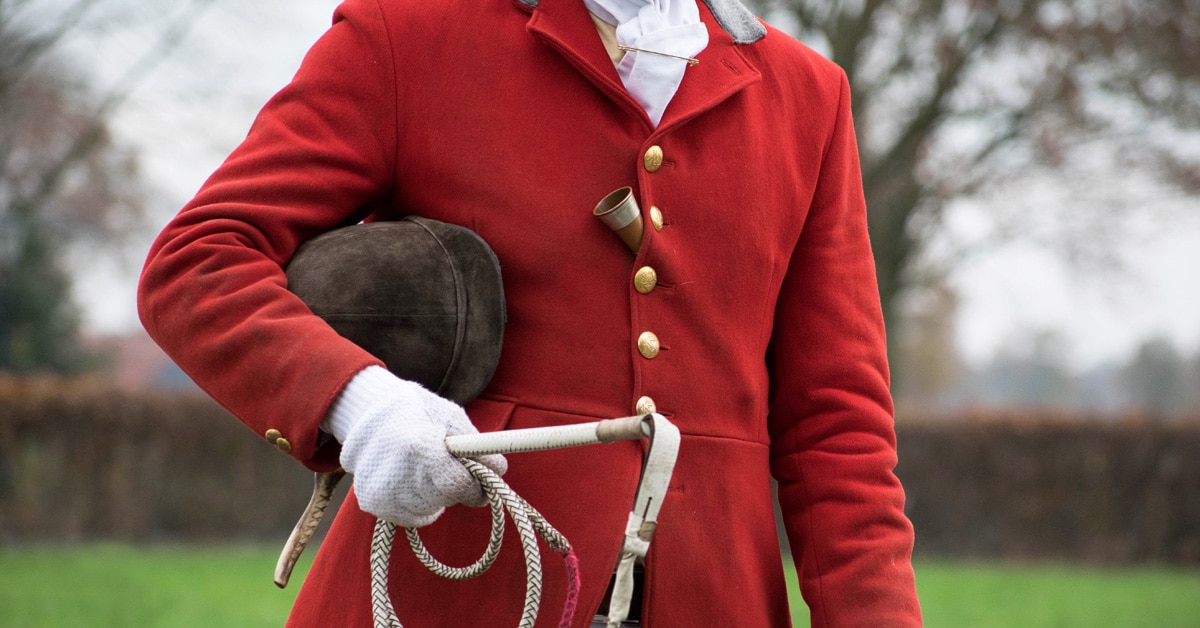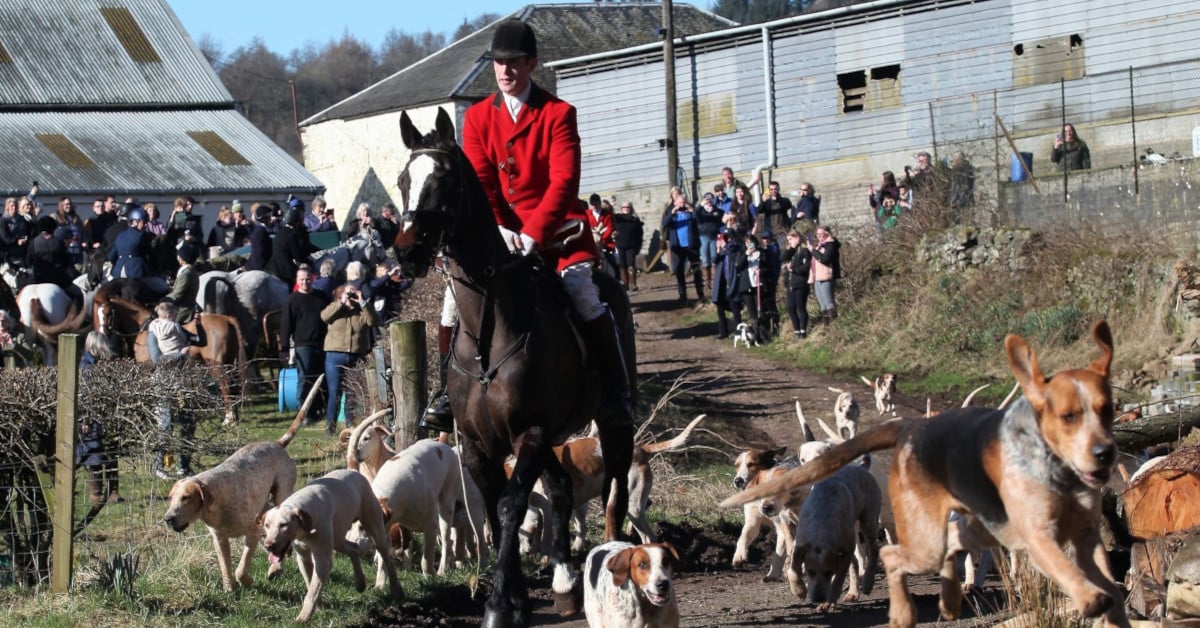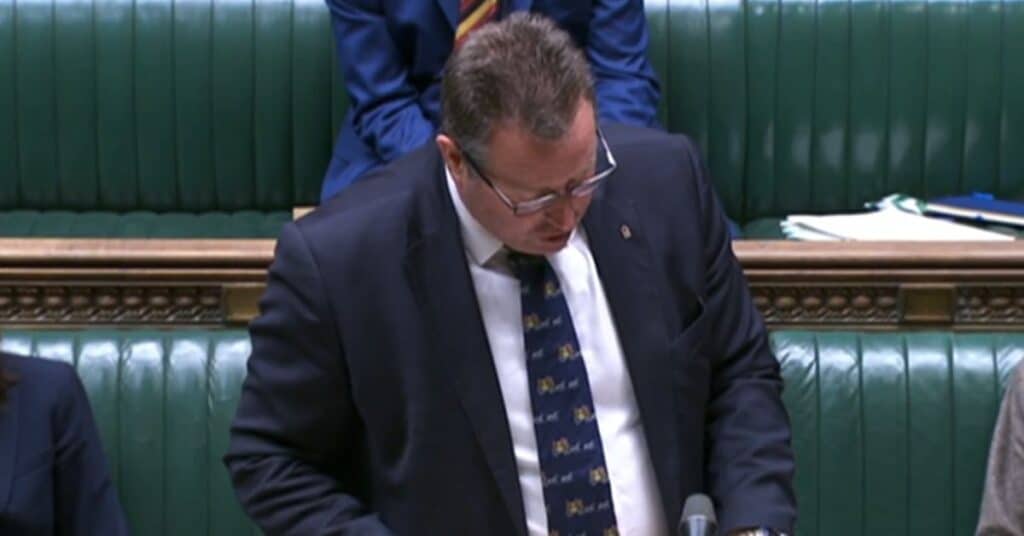The government has dropped the Kept Animals Bill, which promised to alleviate some of the worst excesses of animal cruelty. And it dropped the bill to protect its mates in the hunting industry.
When the government dropped the Kept Animals Bill, it provided a cryptic reason for doing so. Mark Spencer, Defra minister, claimed on 25 May that the Tories planned to break up the measures in the Bill and repackage them as “single-issue legislation”. In doing so, it would ensure that they would pass through parliament in the “surest and quickest way” possible.
Spencer also hinted at another reason, however. He told parliament that Labour was threatening to widen the Bill’s scope. This suggestion was echoed in a statement published on Defra’s website. It said that:
“the original Bill faced [pressures] from broader interests beyond the original manifesto commitments”
The government’s official channels remain tight-lipped about this ambiguous threat. However, Humane Society International UK (HSI/UK) revealed that the Tories are concerned about new anti-hunting legislation.
BBC News reported that HSI/UK senior director Claire Bass said “the real reason” is that the government doesn’t want parliamentary debate “on polarising issues such as hunting with dogs”. Meanwhile, BBC News also said that Labour said it had no intention of introducing such amendments to the bill. Instead, it suggested the bill was dropped due to fears that the Conservatives’ own backbenchers would bring challenges to the Bill. A tweet by the Countryside Alliance Press Office account suggested that it, to some extent, agreed:
Bizarre take. You should be looking at the behaviour and priorities of some of your own CAWF parliamentary members. It is through their actions this important legislation has not gone forward.
— Countryside Alliance Press Office (@CApressoffice) May 25, 2023
Regardless of where the challenge came from, it’s clear that hunting remains a spectre haunting the halls of Westminster.
‘Unnecessary tensions and campaigns’
In Spencer’s statement to parliament, he said:
“The Bill risks being extended far beyond the original commitments in the manifesto and the action plan. In particular, Labour is clearly determined to play political games by widening the Bill’s scope.”
However, this public statement is an adjustment to the originally drafted version. Protect the Wild has seen the letter, written by environment minister Therese Coffey, which said:
“The Bill risks being extended far beyond the original commitments in the manifesto and the action plan. In particular, Labour is clearly determined to play political games by widening the scope of this bill to include hunting. This is not the purpose of the Bill and will likely stoke unnecessary tensions and campaigns.”
The existence of this draft version signals two concerns of the current Conservative government.

Reading between the lines
Firstly, the original draft shows highlights how hunting remains an open wound for the party and one they’d rather ignore than confront. The Conservative Party had repeatedly said it would repeal the Hunting Act in its election manifestos for nearly 15 years.
However, this proved nearly catastrophic for then-leader Theresa May during the run-up to the 2017 general election, resulting in the party dropping the pledge from its subsequent manifestos. It has since remained cautious on the issue, with Boris Johnson’s 2019 manifesto instead saying that it would make no changes to the Hunting Act. Of course, no change meant business as usual. Hunting would continue as it has done since 2005, when the law came into effect. And that meant – as hunt saboteurs and monitor groups have repeatedly shown – that hunts would continue chasing and killing wildlife.
However, following Scotland’s passing of the Hunting With Dogs law in January, pressure for a stronger law across England and Wales has grown. It’s no surprise, then, that the Tories are doing all they can to avoid letting any sliver of light through on this issue.
Secondly, Spencer didn’t want to mention the issue at all in the government’s public statement. The reason for his amendment of Coffey’s original draft is unknown. However, Spencer has some direct ties to the hunting industry. Wildlife Guardian reported how members of the Grove and Rufford Hunt campaigned for Spencer during his 2017 election campaign. The Defra minister also rubs necks with the shooting industry.
How might these friends have reacted had he dragged the carcass of a popular animal welfare bill onto their doorstep?

Kept Animals Bill: another victim of hunting
The dropping of the Kept Animals Bill is a huge blow for all animals in the UK. It contained measures against cruel practices including live exports, ‘puppy farming’, and the keeping of primates as domestic animals. The fact the government has done this to protect the hunting industry is vile.
It claimed that it will break up the measures and push them through as a number of single-issue legislation, likely through the private members’ bill mechanism. Spencer claimed these had already proved successful. However, according to the Electoral Reform Society, private members’ bills rarely make it into law. Bundling all of the measures into a broad bill such as the Kept Animals Bill meant that some of the less ‘glitzy’ measures were helped by headline issues into law.
The Tories tanked this to protect hunting.
It’s therefore clear that, despite the best attempts of the government and hunting lobbyists to downplay its role, the hunting problem hasn’t gone away. Moreover, it still resonates at a parliamentary level. So now, with recent anti-hunting success in Scotland, the time for a proper ban is here.
Protect the Wild is calling for a new law that will finish the English and Welsh hunting industry forever. Read more about it here.
Featured image via Parliamentlive.tv



